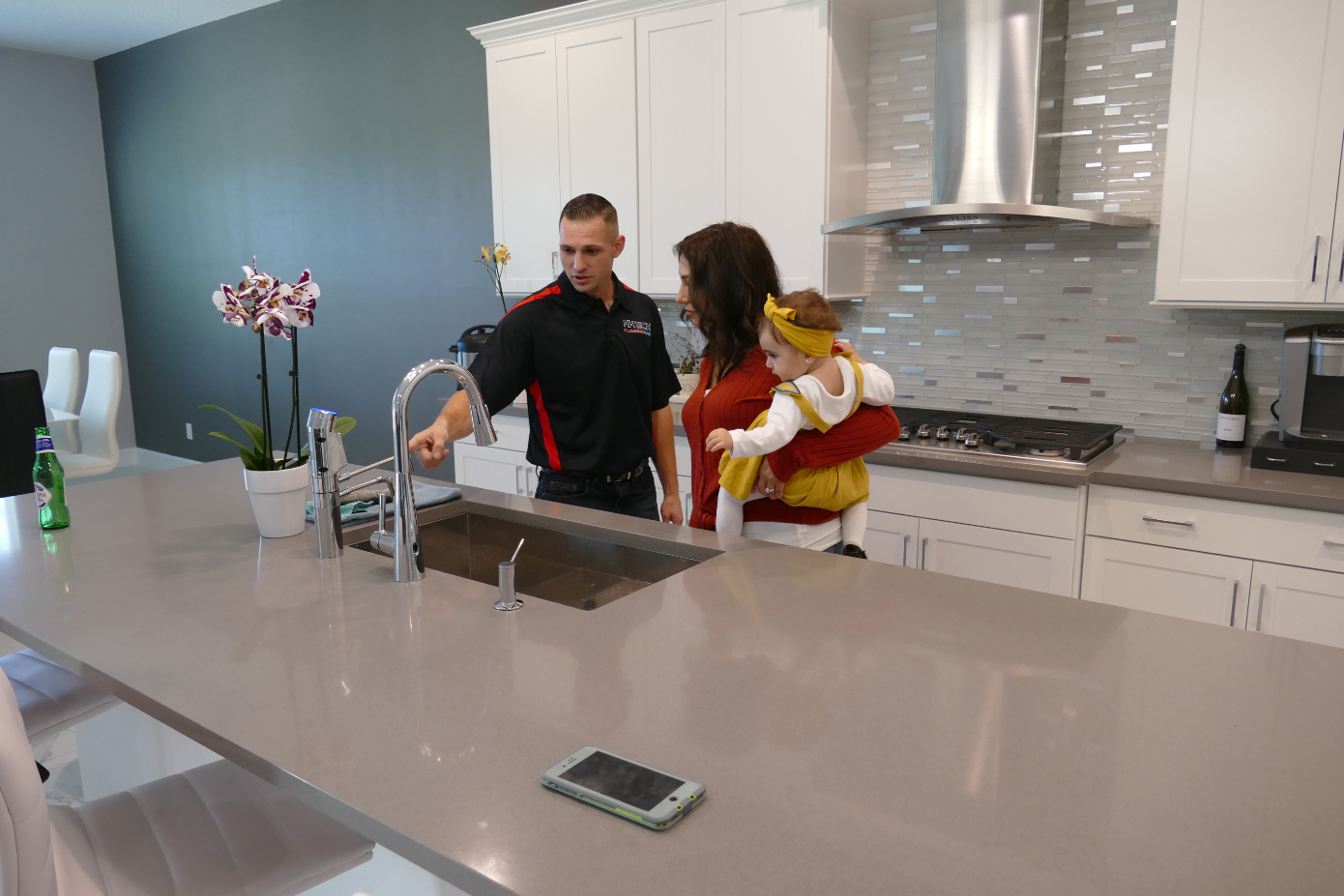Spring is a season of renewal. As you freshen up your home with deep cleaning, decluttering and outdoor prep, don’t forget one of the most important systems in your home—your plumbing. While often out of sight, your plumbing system works year round to deliver clean water and remove waste. And after a long winter, spring is the perfect time to make sure everything is working at its best.
With these top 5 plumbing tips for spring cleaning, you can prevent big problems, extend the life of your fixtures and avoid costly repairs.
1. Check for Leaks and Drips
One of the most common—and most overlooked—plumbing issues is the slow drip or hidden leak. Over time even minor leaks can waste hundreds of gallons of water and lead to mold, mildew or water damage behind walls and under sinks.
What to check:
Faucets in the kitchen, bathroom and utility room
Showerheads and outdoor spigots
Under-sink plumbing and around toilets
Pipes in basements or crawl spaces
How to detect leaks:
Look for water stains, warped wood or musty odors
Watch your water meter before and after shutting off all water
Check your water bill for unexpected increases
Quick Fix: Replace worn washers or O-rings in dripping faucets and tighten any loose connections.
2. Clean Out Your Drains
Spring cleaning isn’t just for surfaces—it should include your drains, too. Clogged or slow moving drains are a sign that hair, grease, food particles or soap scum are building up in your pipes.
Tips for spring drain cleaning:
Pour boiling water down the drain to dissolve buildup
Use a mix of baking soda and vinegar to naturally clean and deodorize
Remove hair traps in shower and tub drains for cleaning
Avoid chemical drain cleaners which can damage pipes
Pro Tip: If multiple drains are slow or backed up, it could be a problem in your main sewer line. Consider a professional camera inspection to avoid a messy surprise later.
3. Check Outdoor Plumbing and Hose Bibs as winter thaws, it’s time to inspect your outdoor plumbing for any damage caused by cold weather.
What to look for:
Leaking hose bibs or spigots
Cracked garden hoses
Broken irrigation systems
Wet patches in the yard (which may signal underground leaks)
What to do:
Turn on your outdoor faucets and look for any drips or pooling water
Replace damaged hoses and connections
Ensure proper drainage away from your home’s foundation
If you had hoses attached all winter, there’s a chance water froze in the pipe, so test carefully before full use.
4. Test Your Sump Pump
If you have a sump pump, spring is the season when it earns its keep. With snowmelt and increased rainfall, your basement or crawl space may be prone to flooding without a working pump.
How to test your sump pump:
Pour a bucket of water into the sump pit.
Watch to make sure the pump turns on and removes the water quickly.
Check the discharge pipe carries water away from your foundation.
Pro Tips:
Clean debris from the sump pit.
Make sure the pump’s power source is secure.
Consider a backup battery system in case of power outages.
Don’t wait for a spring storm to find out your sump pump isn’t working.
5. Flush Your Water Heater
Your water heater works hard all winter long and over time sediment from hard water can build up at the bottom of the tank. This buildup reduces efficiency and can even cause the heater to wear out faster or make popping sounds.
Spring water heater maintenance checklist:
Turn off the power or gas to the unit.
Attach a hose to the drain valve and flush out the tank until water runs clear.
Check the temperature setting—it should be around 120°F for optimal efficiency and safety.
Inspect the anode rod and replace it if corroded.
If you’re not sure how to safely drain your water heater, a professional plumber can do this as part of an annual plumbing inspection.
Bonus Tip: Get a Professional Plumbing Inspection
While you can do some of these tasks yourself, having a spring plumbing inspection done by a licensed plumber can catch hidden issues before they become major problems. A pro can:
Check for pipe corrosion
Inspect your sewer line and water pressure
Clean out major drains
Recommend energy-saving upgrades like low-flow fixtures
Many plumbers offer spring discounts, so book your appointment now.
Why Spring Plumbing Matters
Spring plumbing maintenance does more than keep your home clean—it prevents water damage, saves you money, and gives you peace of mind for the warmer months.
By including plumbing in your spring cleaning, you:
Avoid costly repairs
Conserve water
Extend the life of fixtures
Get your home ready for increased usage
Whether you’re hosting, gardening or just enjoying a clean space, a well-maintained plumbing system means everything runs smoothly.
Final Thoughts
As you open the windows and let in the fresh air this spring, take a few extra minutes to give your plumbing some love. With a little effort—and help from your local plumber—you’ll have a stress-free season with fewer plumbing problems and more time to enjoy the good stuff.
Need help with your spring plumbing?
Call Hi-Tech Plumbing today to schedule an inspection or drain cleaning. We offer fast, friendly, affordable plumbing for every home.

